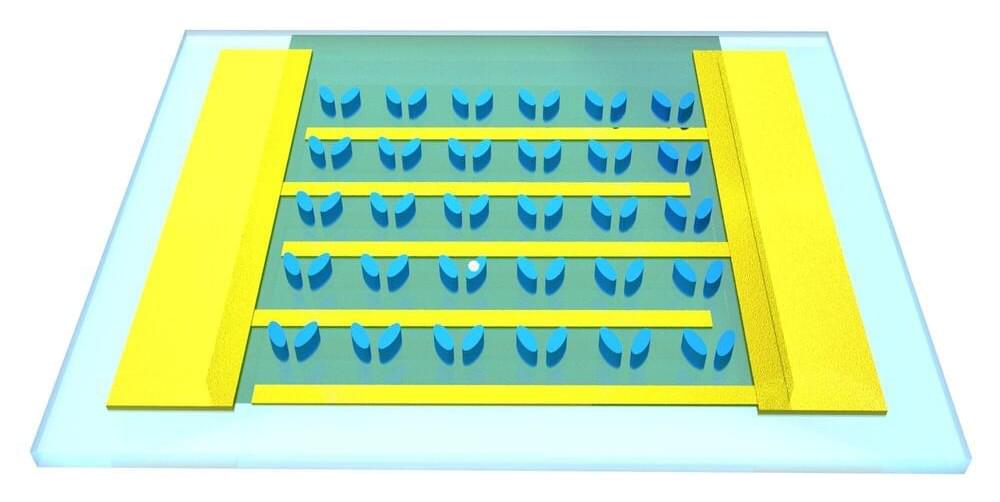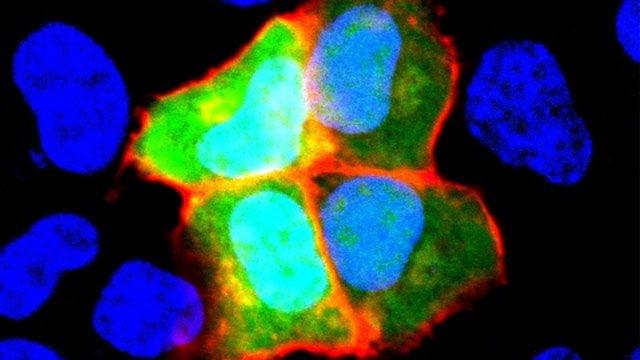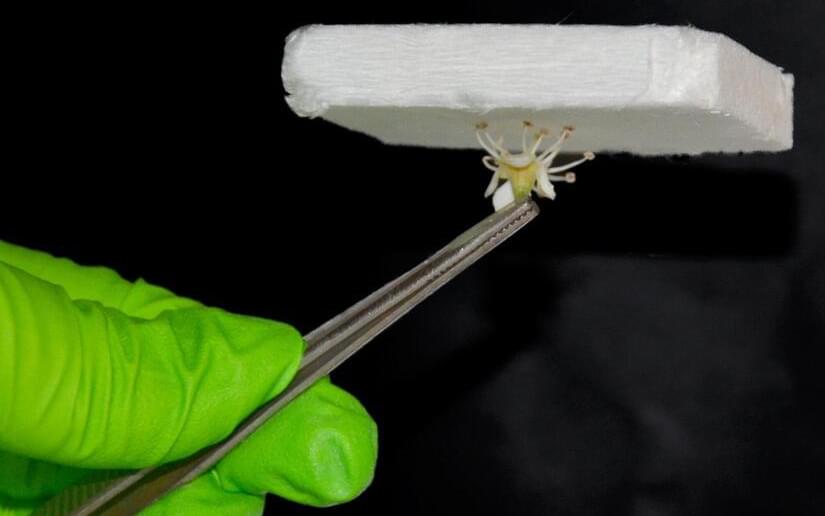Jun 7, 2022
High-speed, efficient and compact electro-optic modulators for free space
Posted by Saúl Morales Rodriguéz in categories: computing, engineering, transportation
Electro-optic modulators, which control aspects of light in response to electrical signals, are essential for everything from sensing to metrology and telecommunications. Today, most research into these modulators is focused on applications that take place on chips or within fiber optic systems. But what about optical applications outside the wire and off the chip, like distance sensing in vehicles?
Current technologies to modulate light in free space are bulky, slow, static, or inefficient. Now, researchers at the Harvard John A. Paulson School of Engineering and Applied Sciences (SEAS), in collaboration with researchers at the department of Chemistry at the University of Washington, have developed a compact and tunable electro-optic modulator for free space applications that can modulate light at gigahertz speed.
“Our work is the first step toward a class of free-space electro-optic modulators that provide compact and efficient intensity modulation at gigahertz speed of free-space beams at telecom wavelengths,” said Federico Capasso, Robert L. Wallace Professor of Applied Physics and Vinton Hayes Senior Research Fellow in Electrical Engineering, senior author of the paper.
















